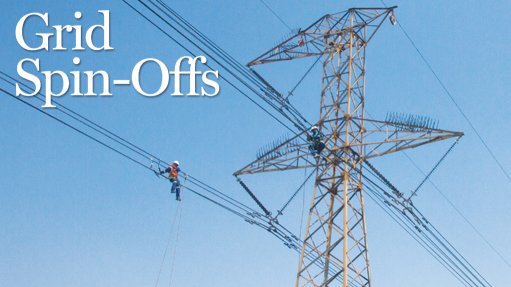Institute working to host international event locally
The South African Institute of Tribology (SAIT) is collaborating with industry bodies and relevant government departments to host the International Tribology Council’s (ITC’s) eighth International World Tribology Congress in South Africa in 2025 or 2026, says SAIT president Patrick Swan.
“We are working hard to get interested parties involved. the Department of Science and Innovation, the Council for Scientific and Industrial Research, and other companies are supporting us.”
Swan points out that South Africa’s hosting the event would provide a range of benefits to the local industry and the economy.
The ITC hosts a congress every four years. The seventh congress was scheduled to be hosted in Lyon, France, this September, but has been delayed because of the Covid-19 pandemic. The event will now be hosted from July 10 to 15 next year.
The sixth, fifth and fourth events were held in China, Italy and Japan respectively, with attendance for these events reaching just over 2 000, 1 500 and 2 200 people respectively.
Many people at the previous events were from outside the respective host countries, and with Swan predicting that the eighth event could attract a minimum of about 1 500 people into South Africa, he emphasises that hosting this event could provide a significant boost for the local tourism industry.
“We’re trying to get more of the local industry and other parts of government to support us, as we will need financial support and sponsors. It will most likely be held at the Convention Centre, in Cape Town. This is what we’re working”.
Tribology Locally
Swan explains that tribology is the science of the contact that occurs when any two parts rub against each other. Friction and wear are the major results when two parts rub together.
Tribology aims to understand and control friction between two moving parts.
Swan highlights two types of tribology that focus on two-part and three-part contact.
Two-part contact involves reducing friction by focusing on the nature, metallurgy and surface finish of the surfaces of the two parts, while three-part contact involves reducing friction using a material, such as a lubricant, that is placed between the two moving parts.
Reducing and controlling friction through these methods reduces wear and provides longer life spans for the parts.
Emphasising the importance of tribology and its benefits for the local industry, Swan discusses a study that SAIT conducted with research body the Academy of Science of South Africa into the state of energy efficiency technologies in the country, completed in June 2018. The study later included tribology in its scope.
This study built on a previous study funded by the Department of Science and Technology, as the department was known at the time, that began in 2010. This study had outlined the potential of tribology in decreasing energy consumption and improving the operational performance of machinery.
One of the focus areas was the state of energy efficiency at Medupi power station, in Limpopo.
The friction that a bearing is exposed to can be calculated; therefore, the power that a bearing will absorb when in use can be calculated.
“We calculated the total power that will be absorbed by all the bearings at Medupi when the entire plant is running. This amounted to about 13 MWh/h that would be lost. If modern bearings had been chosen, this would have been about 1 MW. Tribology was not taken into account in the design process.”
The Department of Science and Technology study led to the creation of a Technical Steering Committee on Tribology in 2013, which was meant to play a coordinating role in implementing aspects of tribology in local industry.
Swan adds, however, that government has not continued to support this committee since it was originally established.
He stresses that implementing tribology can also improve equipment life and can help companies save on maintenance costs.
Further, the local industry can save significantly on power and maintenance costs if it applies tribology in choosing the correct lubricant, as incorrect lubrication increases friction, Swan states.
To raise awareness about the importance of tribology, SAIT conducts online and in-person training courses on the principles and technology of lubrication and materials.
The SAIT is regularly involved in international conferences and also conducts one-day seminars on topics regarding lubrication engineering and materials engineering.
The institute’s next seminar – What can tribology do to improve your return on investment? – will be held on June 30.
Article Enquiry
Email Article
Save Article
Feedback
To advertise email advertising@creamermedia.co.za or click here
Press Office
Announcements
What's On
Subscribe to improve your user experience...
Option 1 (equivalent of R125 a month):
Receive a weekly copy of Creamer Media's Engineering News & Mining Weekly magazine
(print copy for those in South Africa and e-magazine for those outside of South Africa)
Receive daily email newsletters
Access to full search results
Access archive of magazine back copies
Access to Projects in Progress
Access to ONE Research Report of your choice in PDF format
Option 2 (equivalent of R375 a month):
All benefits from Option 1
PLUS
Access to Creamer Media's Research Channel Africa for ALL Research Reports, in PDF format, on various industrial and mining sectors
including Electricity; Water; Energy Transition; Hydrogen; Roads, Rail and Ports; Coal; Gold; Platinum; Battery Metals; etc.
Already a subscriber?
Forgotten your password?
Receive weekly copy of Creamer Media's Engineering News & Mining Weekly magazine (print copy for those in South Africa and e-magazine for those outside of South Africa)
➕
Recieve daily email newsletters
➕
Access to full search results
➕
Access archive of magazine back copies
➕
Access to Projects in Progress
➕
Access to ONE Research Report of your choice in PDF format
RESEARCH CHANNEL AFRICA
R4500 (equivalent of R375 a month)
SUBSCRIBEAll benefits from Option 1
➕
Access to Creamer Media's Research Channel Africa for ALL Research Reports on various industrial and mining sectors, in PDF format, including on:
Electricity
➕
Water
➕
Energy Transition
➕
Hydrogen
➕
Roads, Rail and Ports
➕
Coal
➕
Gold
➕
Platinum
➕
Battery Metals
➕
etc.
Receive all benefits from Option 1 or Option 2 delivered to numerous people at your company
➕
Multiple User names and Passwords for simultaneous log-ins
➕
Intranet integration access to all in your organisation


















